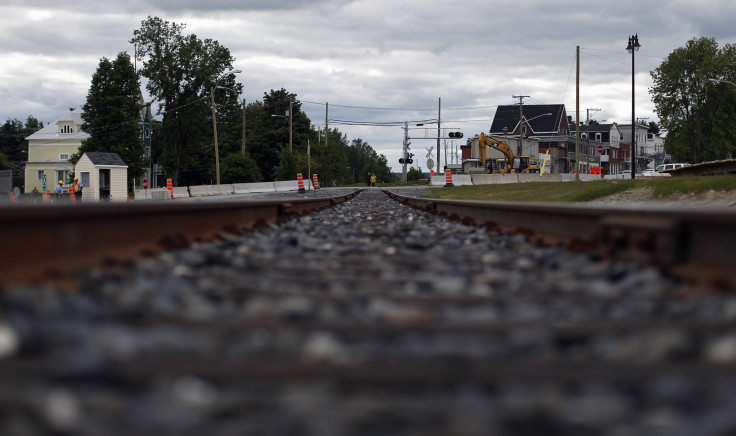Shale Oil Trains: Weighing National Security Versus The Public Right To Know, Wisconsin Reveals Routes Through The State

The sudden boom in oil production from North Dakota’s Bakken Shale deposits has fueled a nationwide increase in crude-by-rail transport -- and associated accidents --prompting heated debate about publicizing the rail routes that oil companies use. The debate centers on which is more important, security for the oil in transit or the public’s right to know about the routes.
Wisconsin is the latest state to weigh in on the matter and it chose the public’s right to know about the routes when it recently revealed the routes and number of trains carrying the volatile Bakken oil through the state. In doing so, Wisconsin rejected arguments from the rail industry, and formerly the federal government, that this information should only be released to those who “need to know” and not the general public, to prevent terrorist acts.
Last month, the U.S. Department of Transportation (DOT) said that details about volatile oil train shipments are not sensitive security information, ordering railroads that ship more than 1 million barrels of Bakken oil a day to report to state officials the routes and volumes of oil that trains carry to help emergency responders prepare for accidents.
State officials in New York and North Dakota are still weighing whether the restrictions on the information would violate their state public record laws and whether disclosing the information would threaten security more than not publishing it.
“I think it’s a valid argument, because if you pop some of those off in a heavily populated area, I don’t know how many lives would be lost,” Edward McConnell, mayor of Casselton, North Dakota, where an oil train derailed and exploded in December but didn’t injure anyone, told the IBTimes in May. “It could be horrific.”
The Wisconsin documents, obtained first by DeSmogBlog through the state’s Public Records Act, show that of the three companies shipping more than 1 million barrels a day of North Dakotan oil through the state, Burlington Northern Santa Fe (BNSF)(NYSE: BNI) transports the most, along the Mississippi River, at the state’s western edge. For the week of June 5 to June 11, the rail company moved 39 oil trains along the river, totaling more than 3 million barrels of oil, the documents show.
State officials from Montana and Washington have also supported the public release of oil train information, asking railroads to publish the records, while California, New Jersey, Virginia, Minnesota and Colorado have agreed to keep the information confidential due to security concerns cited by railroads BNSF, CSX (NYSE: CSX) and Union Pacific (NYSE: UNP), according to the Associated Press.
Matt Landon, an activist with the Vancouver Action Network, said Wednesday that the argument that the information is security sensitive just doesn’t make sense.
“People can see those rail cars, the oil trains,” he said. Landon organized a group of train watchers to estimate the amount of volatile oil passing through Vancouver, Washington, by counting the trains, which are clearly designated with placards.
“The fact that you can see it is one thing, and also, communities need to be involved in risk assessment, and they need to have situational awareness to be able to do this assessment,” Landon said. “By not having all the information about risks, even if they are just passing through, that’s not complete information.”
Since July 6 marked the one-year anniversary of the worst of the recent accidents (a Quebec oil train disaster that killed 147 people), groups like Landon’s, such as climate-focused 350.org and Forest Ethics, have organized an "oil train week of action," including marches and protests. They are protesting at Department of Transportation and Federal Railroad Administration offices across the country on Thursday and Friday, with the message, “No exploding oil trains.”
© Copyright IBTimes 2024. All rights reserved.






















